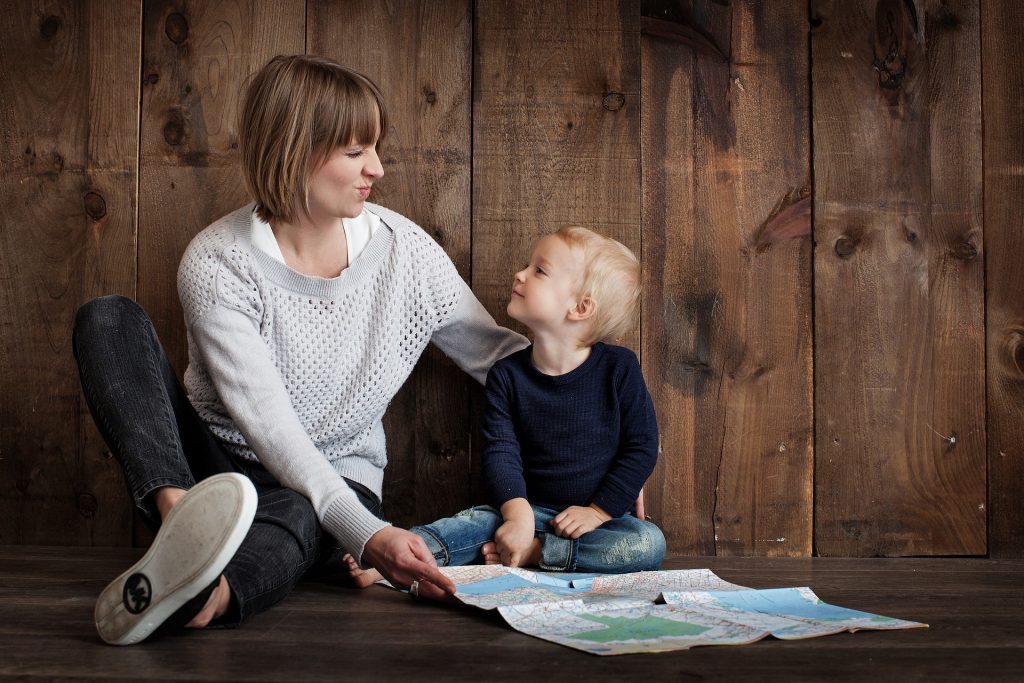This website uses cookies so that we can provide you with the best user experience possible. Cookie information is stored in your browser and performs functions such as recognising you when you return to our website and helping our team to understand which sections of the website you find most interesting and useful.

Considering a motorhome from Continental Leisure Vehicles
25th January 2021
Using Microsoft Dynamics For Home Business Financial Management
3rd February 20214 Unique Ways To Sooth Tensions Between Warring Siblings

*Ad-Paid. All opinions are my own.
While many people imagine themselves living a quaint family life, there is some turbulence here and there for everyone.
Families fight on occasion, and siblings tend to get into more scraps than anybody in the unit. The good news is that making up is almost just as common as these skirmishes, with few sibling altercations resulting in a permanent cutting of ties. Mostly, these altercations are minor bumps in the road, but if those bumps are too frequent, the figurative suspension on your figurative car will start to get damaged.

Therefore, here are 5 unique ways you can sooth tensions between warring siblings.
Partner Them on Chores
Turn taking can often spawn more hassle than its worth, even when its purpose is to make everybody more organised.
Taking turns only really works if all parties involved are mature about things, and to expect kids to adhere to those principles is sort of a foregone conclusion. Additionally, in 2016, Britain was one of the worst countries for kids helping around the house, setting a precedent for UK youngsters do less than their share. It’s a rocky road here, and if you ask one child to do something, you are likely to be met with the answer ‘make [insert sibling name] do it.’
When it comes to chores, instead of having the siblings undertake them alone, pair them together for any of the suitable tasks. This way, it could be that they will bond through the experience, and at least be able to chat away here and there as they go. One could wash the dishes while another dries them, and one could mow the lawn while the other waters the plants.

They should obviously perform tasks as befitting their age, also. No knives or lawnmowers should be in the hands of very young children, but for responsible teens, they will be fine once they understand the importance of health and safety as much as anyone else would. In the end, one of your children can at least be content in the knowledge that, though they are miserable doing chores, their sibling is going through the exact same thing too. That’s fair!
Undertake Family Wide Activities
Family wide activities can cool tempers for a time, especially when they are the more leisurely or fun variety.
It’s no secret that many people have pinned their hopes on nature for improving their wellbeing, citing it as a wonderful antidote against things like anxiety. Instead of undertaking the weekly family walk, try to generate some more excitement. Rock climbing, kayaking, camping trips – it all creates more appeal than a leisurely Sunday stroll could. Give them an outlet to channel their energies and hyperactivity, and fights will be fewer at home.
You could also look at the offerings from Mysterious Mail, who send out personalised gifts for kids in the form of intriguing writings. Each comes to your home from an ‘unknown sender’ (i.e. you and your partner), and the aim is to piece the documents and artefacts together overtime to decode a cunning mystery. A perfect shared experience for siblings, these are incredible gifts for 7 year old boys or 12 year old girls alike, especially when they’re working together. Worried they won’t get immersed? Well, Mysterious Mail ensure all their artefacts are realistic and that each document is aged and antiquated, with the papyrus even being made in an Egyptian village. Instead of committing repeated household offences, your children will strike up a buddy cop-like dynamic in no time.

Be A Good Example
Children source a lot of their behaviour from a variety of sources, not really having the capability to define their own type of personality just yet.
It might be worth asking yourself; what kind of behaviour do you exhibit with your own siblings? Have they witnessed any arguments between you and your brothers and sisters? The conflict doesn’t necessarily to be between them either, but any one person whether it’s your partner or the next-door neighbour. Your kids are likely to copy your behaviour if you are frequently getting into tiffs with others, so it might be some changes are needed here.
It’s important to be a good example for your kids. That way, you can practice what you preach, and they won’t poke holes in any of your logic or brand you a hypocrite for scolding them. Your discipline carries more weight if they are certain you’re of good character, so do keep this in mind.
It might not seem like a unique point to make, but there are many parents out there who frankly don’t behave much better than their children. You only have to look at the kind of outbursts that take place in London traffic jams to see that is true. Therefore, the power of setting a good example is often underestimated. Create an environment of warmth and acceptance, and your children will be far more likely to fall in line.

Offer Friendly Guidance
When siblings are falling out, the last thing they need is their parent falling out with them too.
Instead of dishing out a slice of shouting and righteous fury, try to approach things in a gentler and more understanding fashion. Sometimes, changing the way you speak to your children can yield more positive results in your relationship with them, making them more receptive to you when disparaging their behaviour. The art is disguising the scolding with a layer of love and working to understand what their issue is instead of demeaning their concerns, no matter how petty they are.
It’s less about condoning their actions, and more about understanding their frustrations. Skirting around the blame game and instead keying into ideas of responsibility, maturity, and familial love is more likely to bring them around to a more rational position after an argument. Try to refrain from using cliché phrases like ‘because I said so’ also, as this will likely incite further rage.

The more you try to engage with your children in a tense time, the more you are displaying that you genuinely care about what is happening. Passing comments and off the cuff groundings won’t repair relationships and will likely only cause further sparks of resentment to flare. Even if the argument is over something silly, focus on the principle of the matter instead of the subject itself. That way, you can more ably come around to understanding their frustrations and defusing the situation.


